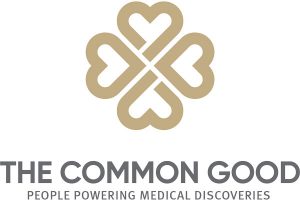
UQ & Metro North Collaborative Research Grants
iOPTIONS: Implementation of adaptive precision dosing for the OPtimal Treatment of invasive Infection in critically ill neONateS
This project will translate software-informed precision antimicrobial dosing, facilitated by innovation in microsampling, into routine clinical practice to improve the clinical care of neonates with sepsis or at risk of sepsis.
Investigative Team
CIA: Dr Natasha Roberts, Nursing & Midwifery Services, RBWH
CIB: Dr Suzanne Parker, UQ
Lighting up the needle in the haystack: targeting cancer associated fibroblasts to detect early pancreatic cancer on PET
This project will look to recruit patients with possible early pancreatic cancer to undergo a novel PET imaging scan to localise cancer associated fibroblasts (CAFs) in the body which can detect small malignant deposits not seen with existing modalities. Immunohistochemical analysis of subsequent tissue samples will be performed to gain new insights into how this exciting new modality might diagnose pancreatic cancer earlier.
Investigative Team
CIA: A/Prof David Cavallucci, Medical Services, RBWH
CIB: A/Prof Fiona Simpson, UQ
High resolution measurement of sleep position during pregnancy and the impact on infant birthweight
Following on from findings that pregnant women who subjectively report going to sleep on their back are at higher risk of stillbirth, the purpose of this project is to objectively characterise overnight sleep position during pregnancy by using more precise measurement techniques over a longer period of time. This assessment of supine sleep during pregnancy will also help to collect data on the relationship between sleeping on the back during pregnancy and lower fetal birthweight as a risk factor for stillbirth, to inform future study designs and power calculations.
Investigative Team
CIA: Dr Danielle Wilson, Allied Health Services, TPCH
CIB: A/Prof Philip Terrill, UQ
QUT & Metro North Collaborative Research Grants
Selecting either dialysis or conservative kidney care: A Discrete Choice Experiment to support shared decision making
Dialysis services are under enormous pressure from the rising prevalence of kidney failure, yet more than half of those who start dialysis later say they regret their decision. This puts a focus on the processes around starting dialysis. The decision is difficult because current evidence of survival and quality of life on dialysis is person-specific, and there are numerous family and cultural confounders. Discrete-choice-experiment (DCE) is a preference elicitation tool that qualitatively prioritises patients’ values in choosing competing treatment options. Information derived from DCE is a powerful patient voice in the shared decision-making process where benefit of dialysis is uncertain. The aim of this study is to objectively enumerate and weight patient priorities and values in preferencing one of two possible treatment pathways at end of kidney life using DCE.
Investigative Team
CIA: Dr Louise Purtell, Allied Health Services, Caboolture Hospital
CIB: Dr Sameera Senanayake, QUT
A novel database-integrated platform for conducting randomised clinical trials in intensive care
ICUs at Caboolture, Redcliffe, RBWH will conduct “Phosphate Replacement In Critical illnEss” (PRICE-1) database-integrated, randomised, controlled trial (RCT) in a new partnership with the QUT Faculty of Health. This novel trial will amalgamate the investigators’ clinical trials and complex biostatistics expertise with MNHHS digital ICU infrastructure (MetaVision™) to provide pilot data for an important clinical question, and an Australian-first database-integrated, highly cost-efficient RCT as a proof of concept for future ICU RCTs.
Investigative Team
CIA: Dr Mahesh Ramanan, Medical Services, Caboolture Hospital
CIB: Prof Kevin Laupland, QUT
A randomised controlled trial exploring the administration of intravenous antibiotics and fluids via intravenous pole and pump versus portable CADD pump to improve mobility in patients diagnosed with cancer (The Active Trial)
Febrile oncology patients are often admitted for intravenous antibiotics (IVABs) and/or intravenous (IV) fluids for 5 – 7 days. Currently, IVABs are delivered via the standard pump, connected to an IV pole, which can decrease mobility and increase the risk of falls. This Randomised Control Trial will compare the IV pole and pump system (standard care) to the portable Computerised Ambulatory Delivery Device (CADD) (intervention). It aims to determine whether IVABs and IV fluids are best delivered via the IV pole and pump or portable CADD system to improve mobility, patient outcomes and reduce hospital-acquired complications for oncology inpatients.
Investigative Team
CIA: Ms Robyn Matthews, Allied Health Services, TPCH
CIB: Dr Toby Pavey, QUT

QIMRB & Metro North Collaborative Research Grants
A mixed-methods study to inform health service planning for patients with non-alcoholic fatty liver disease in Queensland
The QLD-wide linkage study will describe the patterns of healthcare utilization and costs (2009-2019) attributed to non-alcoholic fatty liver disease (NAFLD) to identify, at a macro level, potentially modifiable factors associated with health service use/cost and patient outcomes. The cross-sectional study of 200 patients with NAFLD (with a subset participating in an interview) will provide granular data to examine these factors in detail (e.g. patient knowledge/understanding of NAFLD, supportive care needs, prevalence of anxiety/depression, preferences for management of NAFLD).
Investigative Team
CIA: Dr Richard Skoien, Medical Services, RBWH
CIB: Prof Patricia Valery, QIMR Berghofer
Immune cell profiling using spatial transcriptomics in gastrointestinal graft-versus-host disease (GI-GVHD)
This pilot study will examine tissue-based immune cell profiling using a novel spatial transcriptomics approach for the diagnosis and/or prognosis of acute gastrointestinal graft-versus-host disease (GI-GVHD) and advance our understanding on the cellular mechanisms leading to GI-GVHD.
Investigative Team
CIA: Dr Ashleigh Scott, Medical Services, RBWH
CIB: Prof Antiopi Varelias, QIMR Berghofer

Griffith & Metro North Collaborative Research Grants
Examining clinical outcomes of patients receiving treatment via long ultrasound-guided peripheral intravenous catheters: an observational cohort study (the EXTEND Study)
Peripheral intravenous catheters (PIVC) continue to be the most common invasive device in modern healthcare. Traditionally, short (25-32mm length) PIVCs are inserted, however up to 69% fail before treatment completion. The insertion of long PIVCs (48-64mm) under ultrasound guidance (USG) has become popular for patients with difficult intravenous access (DIVA), who are often subjected to multiple failed attempts and treatment delays. This observational cohort study will identify incidence of long USG-PIVC failure and explore inherent (e.g. gender) and treatment (e.g. irritant intravenous (IV) antibiotic) risk factors for failure.
Investigative Team
CIA: Ms Emily Larsen, Nursing & Midwifery Services, RBWH
CIB: Dr Matthew Zunk, Griffith University


UniSC & Metro North Collaborative Research Grant
Co-supported by The Prince Charles Hospital Foundation
Post-operative functional recovery in older adults who have undergone emergency non-cardiac surgery – a multisite prospective longitudinal cohort study
The proportion of older adults undergoing emergency surgery is increasing. Older adults have higher surgical mortality and more hospital-associated complications, but surprisingly little is known about their post-hospital recovery of physical and social functioning, and quality of life, which are important patient goals. This multisite prospective longitudinal cohort study of older adults having emergency non-cardiac surgery will describe trajectories of recovery using patient-reported outcomes, and specifically, investigate the impact of frailty. This research will provide critical information to optimise assessment, inform shared decision making, and inform design of perioperative interventions to improve outcomes that matter to older adults having surgery.
Investigative Team
CIA: Dr Andrea Taylor, Nursing & Midwifery Services, RBWH
CIB: Dr Alison Craswell, USC

